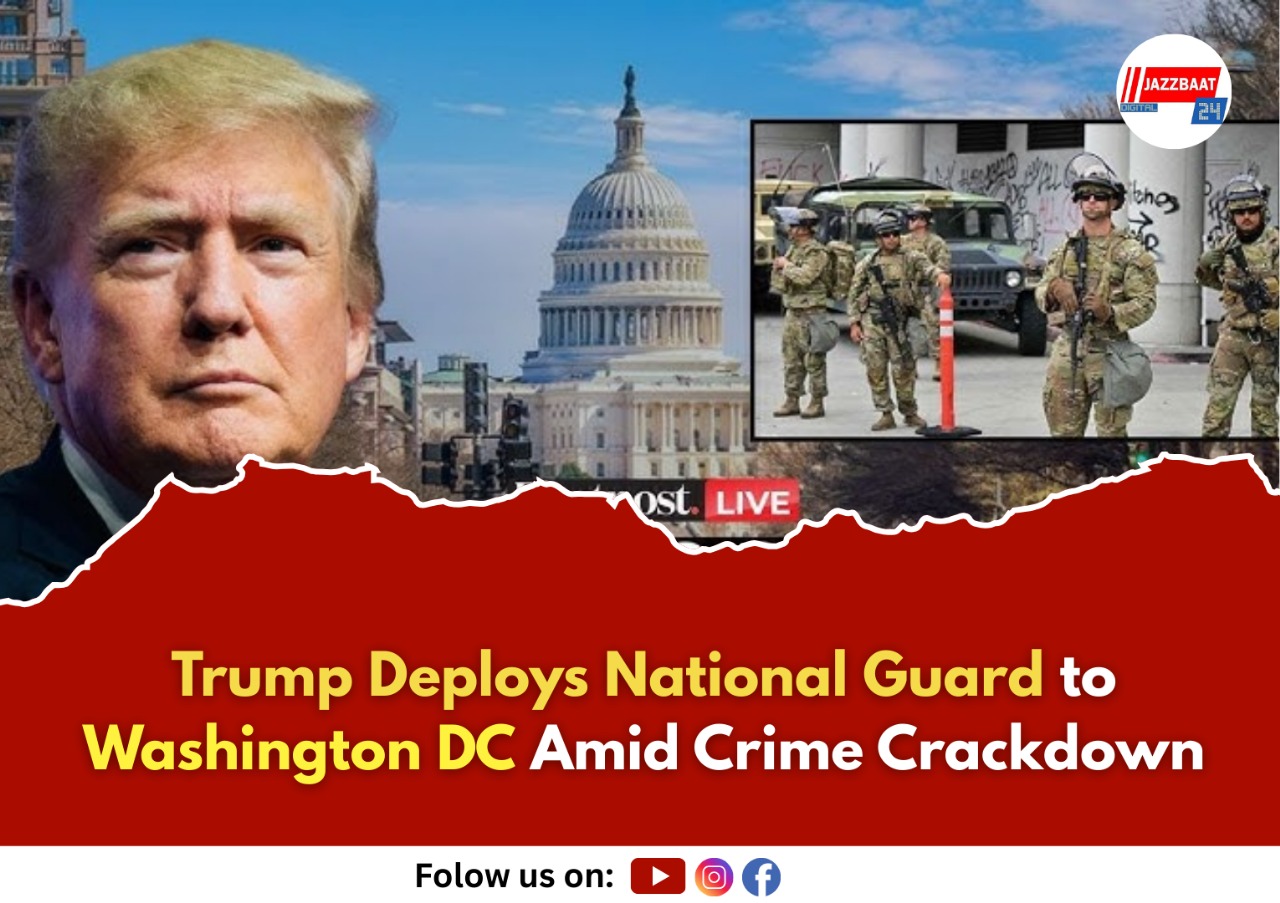
President takes federal control of capital's police force as armored vehicles appear on city streets.
President Donald Trump has deployed 800 National Guard troops to Washington DC and assumed federal control of the city's police department, citing an "epidemic of crime" in the nation's capital. The dramatic move has sparked fierce political debate over public safety, federal overreach, and the militarization of domestic law enforcement.
Armored vehicles and uniformed troops began appearing at tourist sites and government buildings across DC on Tuesday evening, following Trump's emergency declaration. The deployment also includes 500 federal law enforcement agents working alongside local police.
"We're going to take our capital back," Trump declared at Monday's White House press conference, flanked by his attorney general, defense secretary, and FBI director. He promised to remove homeless encampments and eliminate what he called "slums" in the district.
The president justified the unprecedented federal takeover by pointing to recent violent incidents, including the murder of two embassy staffers in May and a congressional intern's fatal shooting near the White House in June. DC recorded its 100th homicide of the year Monday night when a gunman killed a man in the trendy Logan Circle neighborhood.
However, official crime statistics paint a more complex picture. Metropolitan Police data shows violent crime fell 35% in 2024 to its lowest level in three decades, while FBI figures indicate a more modest 9% decrease. Despite these improvements, studies suggest Washington's homicide rate remains higher than other major US cities.
DC Mayor Muriel Bowser, a Democrat, sharply criticized the deployment as an "authoritarian push" while acknowledging shared goals with federal agents. At a Tuesday town hall, she urged residents to "protect our city, protect our autonomy" and called the move part of Trump's broader authoritarian agenda.
The president's critics, including MSNBC host Rachel Maddow, argue the deployment isn't about crime reduction but rather Trump's desire to use military force against American civilians. "Maybe he enjoys it," Maddow said Tuesday night, calling it an "authoritarian takeover."
Federal agents made 23 arrests Monday night for various offenses including homicide, gun crimes, and drug dealing. White House press secretary Karoline Leavitt promised this was "only the beginning" of a month-long crackdown targeting violent criminals.
The move exposes deep political divisions over crime and policing. Democrats struggled to craft effective messaging, with many focusing on Trump's authoritarian tendencies rather than addressing public safety concerns directly. This mirrors broader challenges the party faces on law-and-order issues, particularly after the "defund the police" movement following George Floyd's murder.
Political analysts note Democrats' vulnerability on crime messaging, recalling how similar issues helped Republicans in previous elections. Some Democratic strategists urged their party to better balance safety concerns with opposition to militarized policing.
Trump has threatened similar deployments in other Democratic-controlled cities, including New York and Chicago, signaling this could be a template for future federal interventions. The president's memorandum authorizes the deployment to continue "until conditions of law and order have been restored."
Local officials worry the federal surge is temporary theater that won't address underlying crime causes. They point to recent congressional budget cuts totaling $1 billion that will impact schools, public safety, and an already-stretched police department.
As National Guard troops posed for photos with tourists near the Washington Monument, the unprecedented militarization of America's capital raises fundamental questions about federal power, local governance, and the future of American democracy.